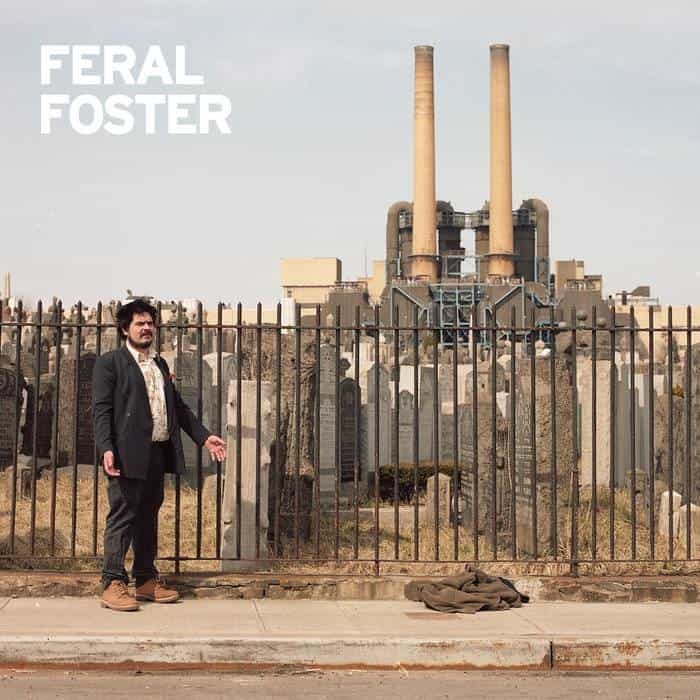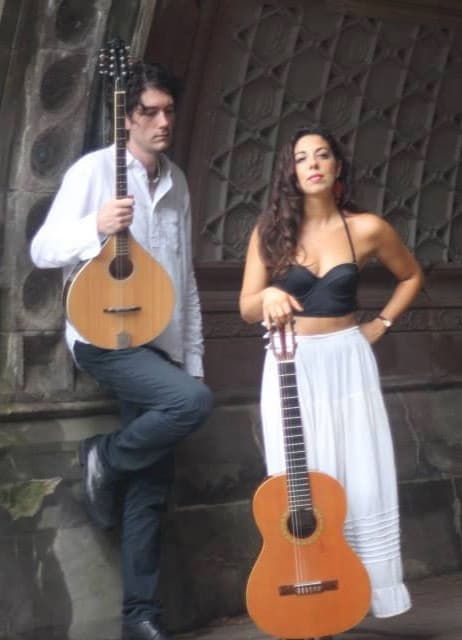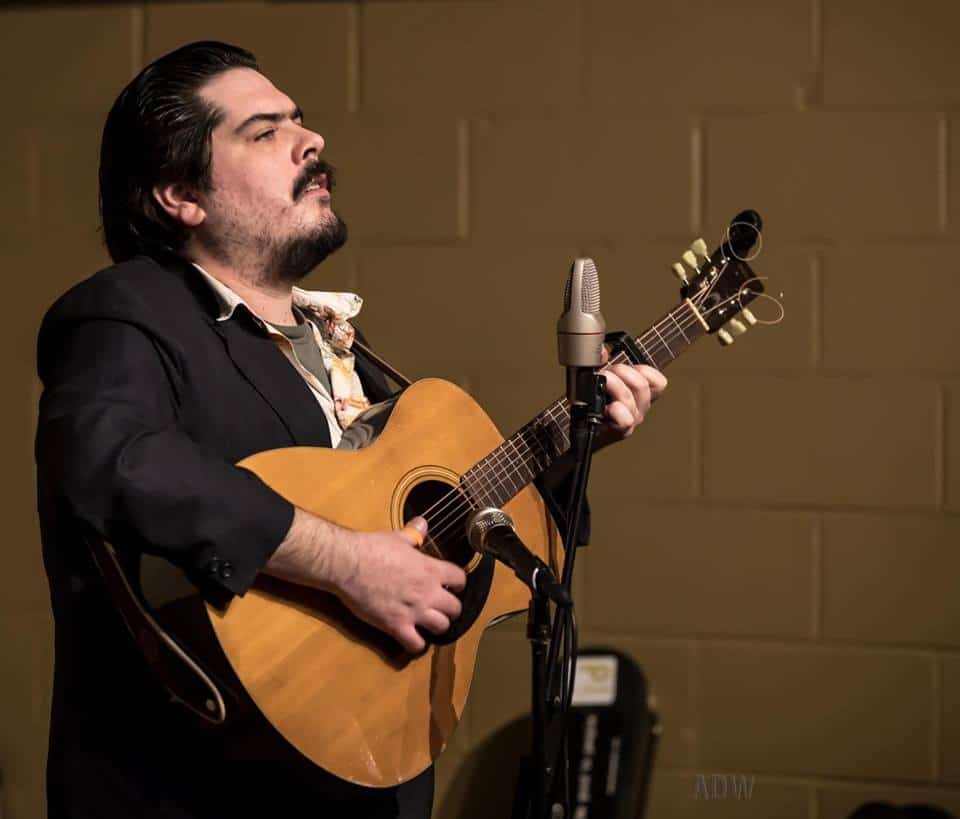Hot on the heels of their recent Folk Festival, this June Brooklyn’s Jalopy Theatre and School of Music host the Brooklyn International Music Festival. Now in its fourth year, this slightly more petite festival shines the spotlight on a wide variety of international sounds, all emanating from New York City. Unlike other festivals such as WOMAD where artists from around the world come together, the Brooklyn International Music Festival draws its performers locally. Considering the city’s diverse makeup, there’s no denying the amount of musical styles that are part of it, some of which is showcased here.
 Curated and organized by Feral Foster, the festival program runs across the nights of June 14 and 15 at the Jalopy Theatre, with after-show music at the adjacent Jalopy Tavern. Foster has built himself a following for his original blues/roots music and hosting Jalopy’s weekly Wednesday “Roots n’ Ruckus” review, showcasing new and established artists. As both an artist and curator, Foster’s finger is truly on the musical pulse of the city. In his own words he describes the festival as “a cross-pollination of music from the world’s most diverse city. It’s an opportunity for the audience to tap into the wealth of talent from different scenes throughout our global city.”
Curated and organized by Feral Foster, the festival program runs across the nights of June 14 and 15 at the Jalopy Theatre, with after-show music at the adjacent Jalopy Tavern. Foster has built himself a following for his original blues/roots music and hosting Jalopy’s weekly Wednesday “Roots n’ Ruckus” review, showcasing new and established artists. As both an artist and curator, Foster’s finger is truly on the musical pulse of the city. In his own words he describes the festival as “a cross-pollination of music from the world’s most diverse city. It’s an opportunity for the audience to tap into the wealth of talent from different scenes throughout our global city.”
The program sees a wide range of music and traditions from Spain, the Ukraine, Iran, Venezuela, Serbia, Nepal, Mali, China, Haiti, and even Brooklyn itself. It’s a great way to experience this international smorgasbord up-close. In fact, you may have already seen some of the performers on your daily commute like Zong Li Lu, who has made a name for himself playing his homemade Chinese monochord (Duxianqin) in the NYC Subway system. Other artists include NPR Tiny Desk sensation Yva Las Vegass who sings and performs with her “face-melting” cuatro Venezolano (Venezuelan ukulele-style instrument). Ukrainian Village Voices are a culturally diverse group performing traditional Ukrainian music, bringing together members of NYC’s Ukrainian and larger folk music communities. Yacouba Sissoko, originally from Mali, is a master kora (multi-stringed harp-like instrument) player and “jeli” (storyteller) who has played with African and American musicians including Amy Koïta, Baaba Maal, Sekouba “Bambino” Diabate, Harry Belafonte, Paul Simon, Lauryn Hill, and Regina Carter.

Peter Stan & Friends features accordion maestro and Ridgewood, Queens, resident Peter Stan performing Serbian & Romanian Romani music. Tropos, a duo of Liamna Pestana Roche and Daniel Yost perform Tambalagumba Spanish and Colonial Latin American music from medieval to the 18th century. They perform on replicas of early instruments, many of which are built by Daniel himself. Kongo is made up of members of NYC’s Haitian community and perform socially-conscious Kreyol songs. Formed in 1997, Sukarma is Nepal’s most sought-after folk-classical trio comprised of three talented instrumentalists. Referred to as a walking museum, these musicians belong to the illustrious gharana (home) of music who have been playing for generations. Farzad Amoozegar-Fassie has spent years mastering the setar and tanbur, studying classic Persian music under Iranian master musicians such as Mohamed Reza Lotfi, Dariush Tala’i, Hooshang Zarif, Masood Shareai, Hossein Alizadah and Ershad Tahmasbie. Finally, Julia Patinella, a singer and songwriter with deep roots in Flamenco traditions is multilingual in Spanish, Italian, Sicilian and English and draws from her traditions to performs music with deep socio-political themes.
The after-show parties at the Jalopy Tavern feature The Rocket 88s on Friday with their mix of rock ‘n’ roll, rhythm and blues, and country and western, featuring “Papa” Ernie Vega, Jay Sanford, Chris Gelb and Charlie Giordano, and on Saturday night La Nueva Cancion, comprised of Latino and American musicians whose aim is to “interpret, collect, and rediscover the diverse folkloric musical styles of South America and the Greater Antilles.”
 Additionally, on Saturday afternoon the festival also hosts a Flamenco vocal and rhythms workshop with Julia Patinella. The workshop is suitable any level of skill and for musicians from any genre. Julia will pass on her special vocal techniques and explore the infectious “palmas” or clapping rhythms that anyone can use to accompany themselves and strengthen their general sense of musicality.
Additionally, on Saturday afternoon the festival also hosts a Flamenco vocal and rhythms workshop with Julia Patinella. The workshop is suitable any level of skill and for musicians from any genre. Julia will pass on her special vocal techniques and explore the infectious “palmas” or clapping rhythms that anyone can use to accompany themselves and strengthen their general sense of musicality.
Tickets are $20 for each evening (or $30 for both nights). Flamenco workshop tickets are $35 each. For more information and tickets, go to Jalopy at 315 Columbia Street, Brooklyn, NY 11231, or www.jalopytheatre.org.
- Andrew B. White









